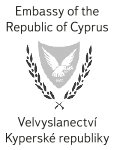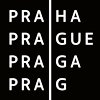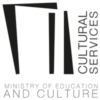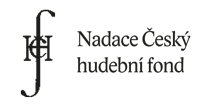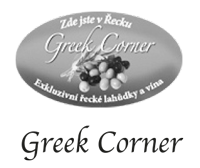Marios Christou
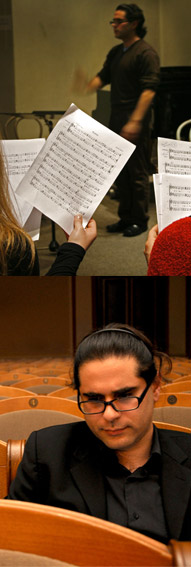 Marios Christou – Artistic director
Marios Christou – Artistic director
Official website: marioschristoucomposer.com
Marios Christou (*1978, Nicosia, Cyprus) is a composer, conductor, psaltis, scholar and pedagogue based in Prague, Czechia. He is the founder and director of the Archaion kallos festival of Orthodox music, the artistic director of the Phillokallia Ensemble, the main byzantine singer (psaltis) of the Church of the Nativity of the Virgin Mary in Prague, and currently teaches at various institutions in Prague (Academy of Performing Arts in Prague, Charles University, ect.).
Christou’s compositional style is shaped by his interest in Byzantine music, the work of contemporary composers such as Arvo Pärt or Henryk M. Górecki, as well as his Greek heritage.
His compositions were commissioned by festivals and ensembles such as the EuropArt festival in Brussels or Trio Bohémo and performed among others by Sedlacek Quartet, NeoKlasik orchestra, Kühn Choir of Prague, Canti di Praga, Andrea Mottlová and Karel Dohnal. As a conductor he has worked with Prague Chamber Choir, Schola Gregoriana Pragensis, Ensemble Versus, Alkinoos Ioannidis and others.
Among his most important contributions to the field of musicology is his work about byzantine music in the opera of B. Martinů “Greek passion”, his studies on byzantine music and the international conference “Sacred Music East and West”, which he organized with the International Society for Orthodox Church Music (ISOCM).
Official website: marioschristoucomposer.com
Demo – compositions:
Chamber music
Echoes of a Greek Liturgy (in Arvo Pärt’s garden)
Beethoven in Greece
Vocal music
Te ri rem (from the Canonic Mass)
Lord I Have Cried (psalm 140)
Orchestral works
A Greek memorial to Lidice
Study for Clarinet and chamber orchesrta
Reception – interviews
-
Marios Christou: Byzantská hudba je součástí evropské kultury – (interview, portal Klasikaplus.cz)
-
Rozhovor s Mariem Christou v časopisu Parrésia – (interview)
-
Vltavský cyklus Duchovní hudba: Zpěvy byzantské liturgie (interview and concert recording, Czech Radio)
-
Umění byzantských zpěvů (documentary)
-
Marios Christou – úspěšný kyperský Řek – (interview, Czech Radio)
Selected Publications
- „A newly-discovered manuscript by Bohuslav Martinů on the Byzantine Octoechos“ (read the full article here), In Journal of the International Society for Orthodox Church Music, Vol. 2, Section II: Conference Papers, 2018, pp. 112–120 ISSN 2342-125
- „The Kratema in the 1st Plagal Mode by P. Chalatzoglou – An 18th-century Kratema written in Sonata Form?“, In Enlightenment & Illumination: Essays on Sacred Music East and West?, Praha: Univerzita Karlova v Praze. Vydavatelství PedF UK, 2020, s. 97–106, ISBN 978-80-7603-151-7
- „Development and motivic elaboration in the third mode Kratema of st. John Koukouzelis“, In Creating Liturgically: Hymnography and Music, University of Eastern Finland, Joensuu, Finland, 2017, s. 300–311, ISBN: 978-952-99883-6-5
- „Arvo Pärt a jeho Tintinnabuli styl ve výuce hudební výchovy – integrace minulosti a přítomnosti“, In: Kontexty hudební pedagogiky II, ss. 61 – 65, Praha 2007, Univerzita Karlova v Praze – Pedagogická fakulta, ISBN 978-80-7290-324-5.
- „Polystylovost v tvorbě H. M. Góreckého“, Praha 2009, In: Kontexty hudební pedagogiky III, ss. 190 – 195, Univerzita Karlova v Praze – Pedagogická fakulta, ISBN 978-80-7290-323-8.
- „Soudobá hudba jako součást vzdělání dnešního pedagoga – Tvorba Alfreda Schittkeho a její význam pro učitele hudební výchovy“, In: Inovace v hudební pedagogice a výchově k poctě Lea Kestenberga, ss. 139 – 143, Olomouc 2008, Univerzita Palackého v Olomouci – Pedagogická fakulta, ISBN 978-80- 903776-5-3.
- „Arvo Pärt a jeho Tintinnabuli styl v hudební výchově“, In: Hudební výchova. Roč. 15, č. 3, 2007, ss. 44 – 46, Praha, Univerzita Karlova v Praze – Pedagogická fakulta, ISSN 1210-3683.
- „Tintinnabuli styl Arvo Pärta jako jeden z projevů nové tonality“, Cantus. Roč. 20, č. 2, 2009, ss. 33-36.
- „Symetrie v tvorbě Bély Bartóka“, In: Hudební teorie dnes a zítra, ss. 97 – 116, Akademie múzických umění v Praze, 2010, ISBN 978-80-7331- 195-7
 PHILOKALLIA
PHILOKALLIA


